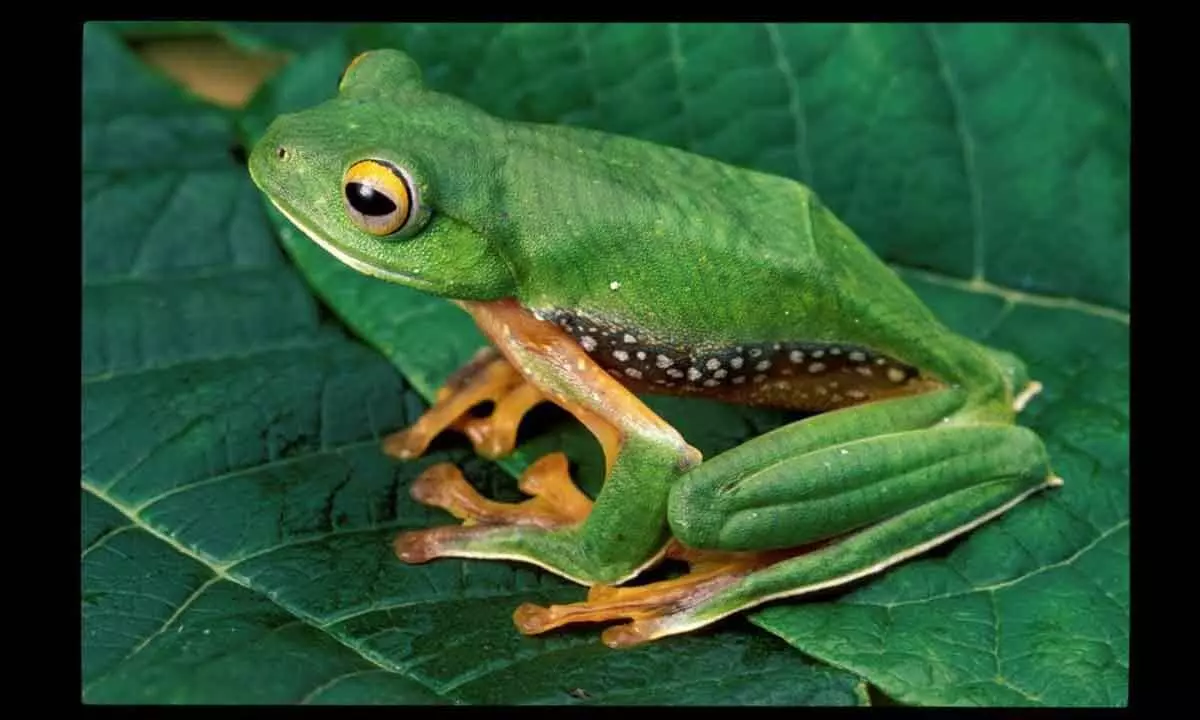Amphibians are now the most threatened vertebrates

Hyderabad: The CSIR-Centre for Cellular and Molecular Biology (CCMB), Dr Karthikeyan Vasudevan, along with a global team of experts on amphibians have recently published the second Global Amphibian Assessment Report in the journal Nature.
According to CCMB officials, this report highlights that amphibians (frogs, caecilians and salamanders) are now the most threatened vertebrates in the world, with over 40 per cent of all species facing threats of extinction, out of 8,011 species assessed so far. The study shows that their status is deteriorating globally. The scientists found that between 1980 and 2004, disease and habitat losses were the reasons for putting 91 per cent of the amphibian species studied to threat. From 2004 to 2023, climate change and habitat loss are the major culprits for status deterioration of 39 per cent and 37 per cent species studied respectively.
“Diseases caused by a fungal pathogen and climate change have been recognised to cause deterioration of status in 60 per cent of the threatened species. Due to the growing pet and wildlife trades the pathogen moves globally, causing problems for local amphibian populations. In April 2023, CSIR-CCMB developed a novel non-invasive diagnostic technique for detecting the fungal pathogen that is now being offered in the Institute’s wildlife diagnostics service,” said Dr Vasudevan.
The findings highlight the need for monitoring of prevalent pathogens and populations of amphibians in their habitats in India. It also emphasises the need to rescue endangered amphibians in Indian zoos,” he added


